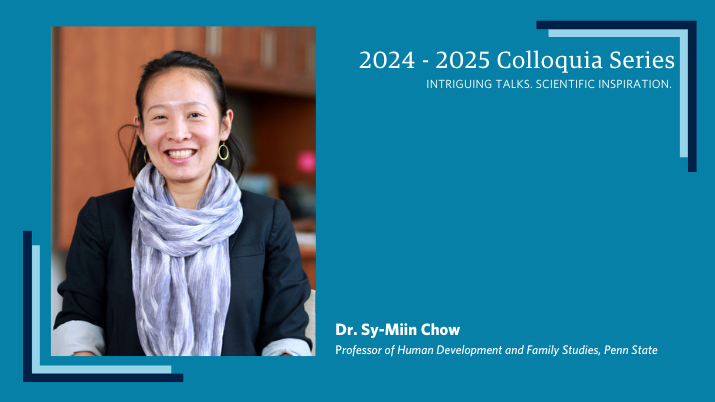

FEATURING
Dr. Lisa Feigenson, Johns Hopkins University
TITLE
Constraints and flexibility in early quantification: Insights from infancy
ABSTRACT
Quantification (e.g., knowing how many objects are in a scene) requires selecting a relevant entity and storing it in working memory for further processing. Critically, multiple kinds of entities can be selected and stored. In this talk I offer evidence that even the youngest humans can represent at least three different levels of entities in working memory. They can represent an individual object (e.g., “that bird”). They can represent a collection of items (e.g., “that flock of birds”). And they can represent a set of discrete items (e.g., “the set containing Bird A, Bird B, and Bird C”). Each of these types of representations permits a different type of quantificational processing, empowering some computations and blocking others. Hence, which quantity-relevant computations may be performed in any given situation depends on which level of representation is stored. This framework for thinking about interactions between attention, working memory, and quantification applies throughout development, starting in infancy.
BIO
Lisa Feigenson is co-director of the Johns Hopkins University Laboratory for Child Development. Her research seeks to understand the cognitive primitives that are available throughout the lifespan, as well as changes in children’s thinking with maturation and experience. She uses primarily behavioral methods to study cognitive abilities in infants, children, and adults.
ABOUT MICHAEL CHANDLER
Michael Chandler is Professor Emeritus, working at UBC’s Department of Psychology. Dr. Chandler received his Bachelor of Arts in 1960 from Grinnell College, Iowa and his Ph.D. in 1966 from the University of California, Berkeley where he worked with Drs. Sheldon Korchin and Theodore Sarbin. He then went on to complete two postdoctoral fellowships; one at the Menninger Foundation in Kansas and the other at the Institut des Sciences de L’Education, Universite de Geneve, in Switzerland with Dr. Jean Piaget. Dr. Chandler is a world-renowned scholar whose accolades and contributions to the field are too numerous to mention in full. He is often recognized for revolutionizing the way scholars conceptualize and study the development of social cognition or ‘theory of mind’ as well as his pioneering research on identity development. His ongoing program of research features an exploration of the role culture plays in constructing the course of identity development, shaping young people’s emerging sense of ownership of their personal and cultural past, and their commitment to their own and their community’s future well being. These efforts, along with more than 150 published books, articles and book chapters, have earned Dr. Chandler the Izaak Walton Killam Memorial Senior Research Prize, led to his being awarded the Killam Teaching Prize, and resulted in his twice being named a Peter Wall Institute for Advanced Studies Distinguished Scholar in Residence. His research and scholarly efforts have also resulted in his being appointed as Canada’s only Distinguished Investigator of both the Canadian Institutes of Health Research (CIHR) and the Michael Smith Foundation for Health Research (MSFHR). Dr. Chandler’s research with children at risk began more than 35 years ago with an article (co-authored with A. Sameroff) that was selected by the Society for Research in Child Development for inclusion in a book entitled Twenty Studies That Revolutionized Child Psychology. Professor Chandler‘s program of research dealing with identity development and suicide in Aboriginal youth was singled out for publication as a book and as an invited Monograph of the Society for Research in Child Development (recently translated into French), and is the only program of Canadian research featured in WHO’s recently released report on the social determinants of health.
Annually the Department of Psychology hosts a Colloquia Series throughout the academic year.


